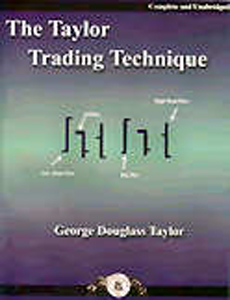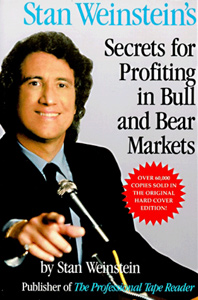CommSec Captial Japan - Expand Your Horizons - Funds
I received an offer to join the Capital Japan Fund from CommSec. The promotional sheet says: "Japan is not only the world's second-largest economy - it's also home to leading global companies like Toyota, Canon, Sony and Nissan. But it hasn't always been easy for Australian investors to take advantage of Japan's growth opportunities. Which stocks should I choose? What about foreign exchange? And is my investment capital safe? These are some of the doubts that have stopped Australians from investing in Japan." I'm not an investor, so I don't know if this would be a good place to park your cash. I'm not - but for others it may be an opportunity to consider. But there is an indication that the Japanese market is on the path to recovery. This recovery path may uncover new trading opportunities.
Capital Japan has a minimum investment of $10,000 and an application fee of 2%. So has the Japanese market finally on the rebound? If you have a graph of the Nikkei 225 you will see that their market had been in a long term down trend from around 1989 to 2003. From April 2003 to around January 2006 the Nikkei had risen by more than 115%. The Nikkei 225 is an interesting composition of the Japanese economy. While the Australian stock market/economy is largely influenced by minerals and metals, The Japanese have the likes of Toyota, Mitsubishi, NTT DoCoMo, Honda, Canon, Matsushita Electric Industries... Another interesting set of figures is the status of the other "Capital Series" Funds that Commsec has. All of them have had pretty good results, considering that these are long term investments over three years. Capital China I had increased by 95.5% or 33.65% annualised since March 2003. Capital S&P/ASX200 had increased 58.5% or 20.61% annualised since March 2003. Capital China II had increased 18.5% since March 2004 or 10.02% annualised since March 2004. Finally Capital India had risen 78.3% or 51.59% annualised since July 2004. Not bad... Better than our local interest rate - which for most investors would be the benchmark to beat. The next question to ask is that - is it worth the risk to invest in these instruments if you are earning 15 to 45% more than the local cash rate? Remember, that funds can depreciate in price, have management fees and you have little or not control over them.
- How to Trade Forex and Gold Options
- How to Trade the Gold Price and Profit!
- Forex Trading the EUR/USD Pair € EURO and $ US Dollar
- How to Trade Stock Market Indices S&P500
- How to Trade Crude Oil
- Forex Trading Psychology
- What Are Broker Recommendations?
- Free Tickets to Trading & Investing Seminar & Expo ($18) Brisbane 2013
- Stock Calc App
- All About Warrants
- Introduction to Exchange Traded Funds
- Introduction to Exchange Traded Funds: Features
- Introduction to Exchange Traded Funds: Domestic ETFs
- Introduction to Exchange Traded Funds: International ETFs
- Exchange Traded Commodities
- Australian Stock Scan
- Australian Online Share Trading
- List of Trading Books
- Interesting Thoughts about the Australian Dollar
- What's the Meaning of Hawkish?
- Do You Know How To Use the P/E Ratio
- Trading, Religion and Politics - Do They Have Anything in Common?
- Shares that are Volatile that Double and Half in the Short Term
- Telstra (TLS) T3
- Margin Call by E-mail
- The Cost of Holding a Position
- Lack of Disclosure: Compensation from ASX Listed Company
- Unrealistic Returns and Benchmarks
- CMC Markets Down
- Quality versus Quantity Forex Trading
- Woolworths 1H Sales $30.7bn up 3.2%
Date added 31-01-2013 - ASIC Fines CommBank's CommSec
Date added 25-09-2012 - Industry Super Network Calls to Ban High Frequency Trading (HFT)
Date added 22-09-2012 - NAB Launches Online Share Trading Platform
Date added 19-09-2012 - Reserve Bank of Australia Says 23 Countries Holding AUD
Date added 18-09-2012 - Australia Post Digital Mailbox
Date added 10-09-2012 - Winners and Losers of Trading for Week 2
Date added 16-01-2012 - 2012's First Week of the Best and Worst Traded Stocks
Date added 09-01-2012 - 2011's Last Best and Worst Traded Stocks
Date added 05-01-2012 - Best and Worst Pre-Christmas Traded Stocks
Date added 30-12-2011 - Trading Winners and Losers for Dec. 12-16
Date added 19-12-2011 - Best and Worst Traded Stocks for Dec. 5-9
Date added 13-12-2011 - Top 3 Best and Worst Traded Stocks
Date added 05-12-2011 - ASX Glitch Trading Halt
Date added 27-10-2011 - Worst Trade Stocks (and the Best)
Date added 06-08-2011
Top 150 Public Companies Listed on the Australian Stockmarket as at 29/05/2009
- BHP Billiton
- Westpac Banking Corporation (WBC)
- Commonwealth Bank of Australia (CBA)
- National Australia Bank (NAB)
- Telstra (TLS)
- ANZ
- News Corporation (NWS)
- Woolworths Limited(WOW)
- Woodside Petroleum Limited (WPL)
- Rio Tinto
- Westfield Group (WDC)
- Westfarmers Limited (WES)
- QBE Insurance
- CSL
- Newcrest Mining Limited (NCM)
- Origin Energy Limited (ORG)
- Santos Limited (STO)
- AMP Limited (AMP)
- Macquarie Group (MQG)
- Foster’s Group Limited (FGL)




